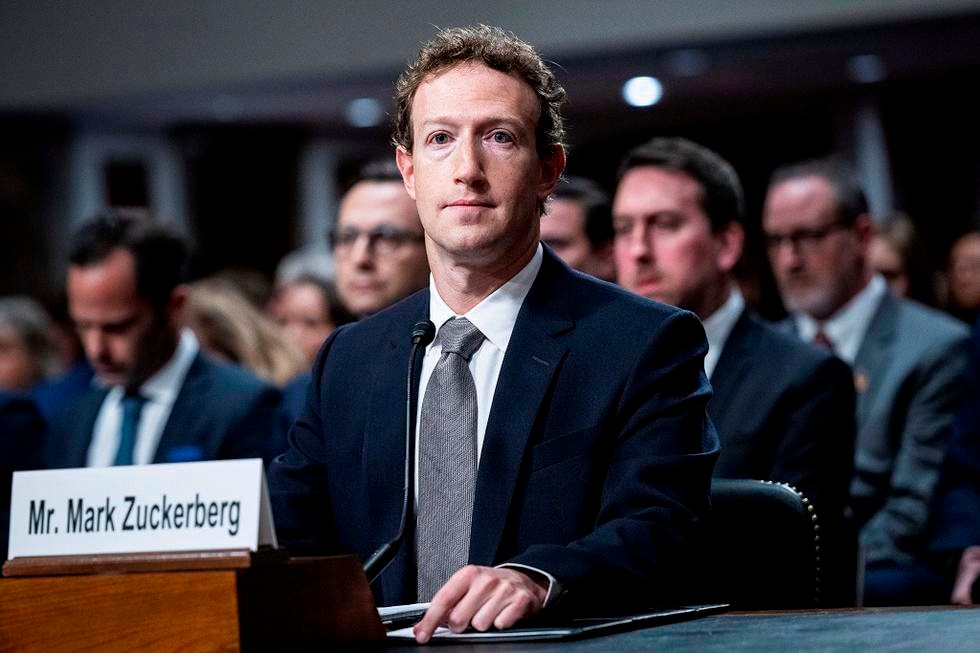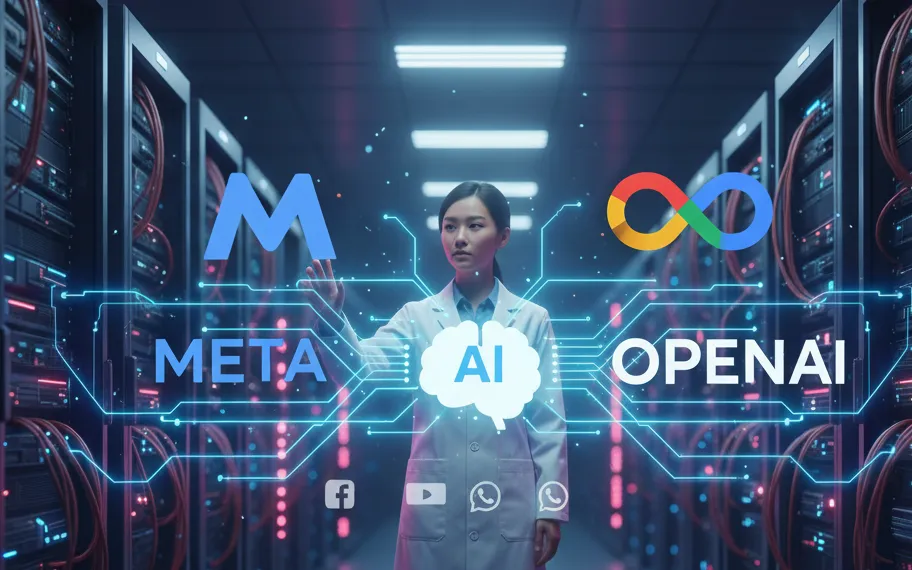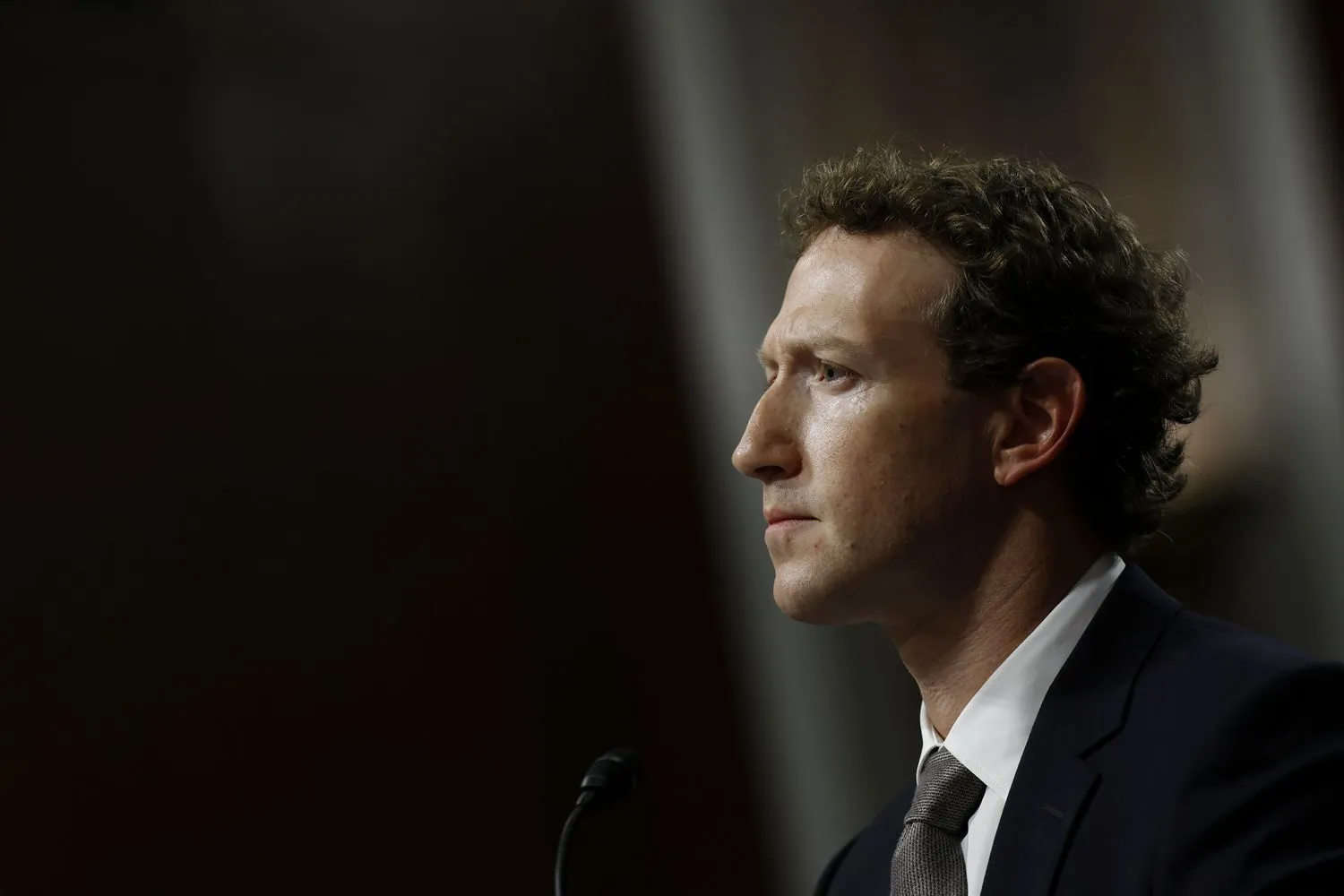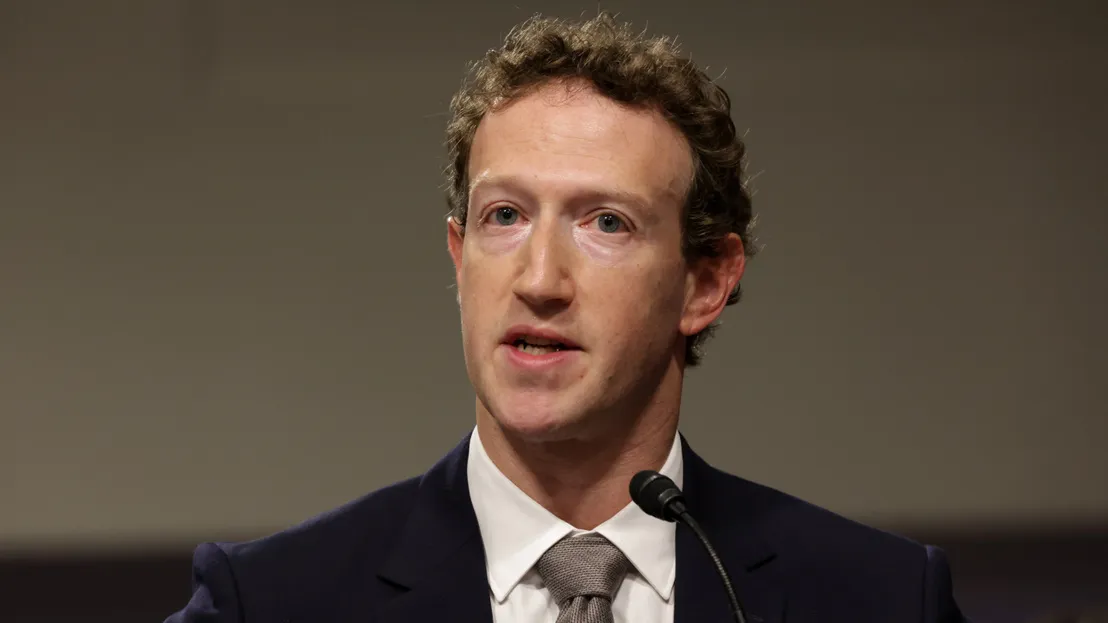

Better to Overspend Than Fall Behind: Zuckerberg Explains Meta’s Aggressive AI Push
When it comes to innovation, Mark Zuckerberg has never been afraid to take big risks. From the creation of Facebook to the rebranding of his empire into Meta, his leadership has consistently involved bold, sometimes controversial decisions. Recently, Zuckerberg made waves again when he explained why he is choosing to overspend on artificial intelligence (AI) rather than slow down. His reasoning is simple but striking: it is better to risk overspending now than to fall behind later.
The statement reveals both Zuckerberg’s philosophy and his strategy for keeping Meta competitive in an industry where technological advances happen at lightning speed. But it also raises questions: how sustainable is this level of spending? What exactly is Meta building with these billions? And is Zuckerberg’s aggressive AI push genius foresight or reckless overconfidence?
The Context of Meta’s AI Investment
The last few years have seen a global surge in AI development. Tech giants like Google, Microsoft, and Amazon are all competing for dominance. Microsoft has invested heavily in OpenAI, Google continues to grow its DeepMind division, and Amazon is integrating AI into its cloud and retail services. In this environment, Meta cannot afford to hesitate.
Meta has committed tens of billions of dollars annually to both the metaverse and AI research. While the metaverse has received mixed reactions and skepticism from investors, AI is seen as a more immediate and practical opportunity. The company is developing AI tools that can transform advertising, enhance user experiences across Facebook and Instagram, and bring life to its long-term vision of immersive digital worlds.
For Zuckerberg, standing still in the AI race is not an option. His philosophy is that even if spending seems extreme today, the long-term payoff will justify it.
Zuckerberg’s Philosophy: Better to Overspend
At the heart of Zuckerberg’s statement is a bold idea: in technology, missing the wave is far more dangerous than overspending to ride it. In industries defined by exponential growth, the companies that dominate often do so because they moved faster, invested earlier, and absorbed risks others avoided.
Zuckerberg argues that AI is a once-in-a-generation opportunity, similar to the rise of the internet in the 1990s. Just as Amazon, Google, and Facebook itself emerged from that era as titans, he believes the companies leading AI today will shape the global economy for decades. From his perspective, overspending is not reckless—it is necessary insurance against irrelevance.

The Role of AI in Meta’s Core Business
One of the strongest justifications for Meta’s aggressive spending is the integration of AI into advertising. Advertising remains the lifeblood of Meta’s business, accounting for most of its revenue. As competition grows fiercer and user expectations evolve, AI-driven personalization has become the key to staying ahead.
AI algorithms allow Meta to deliver highly targeted ads, increasing efficiency for businesses and creating more engaging content for users. With platforms like TikTok using powerful recommendation engines, Meta cannot afford to fall behind. AI also assists with content moderation, automated translation, and security, making it essential for maintaining user trust.
For investors, this part of Zuckerberg’s strategy makes sense: AI is not just futuristic speculation, it is critical to the company’s financial health today.
Building the Infrastructure of the Future
Zuckerberg has also committed Meta to building massive AI infrastructure, including supercomputers and specialized chips. The Meta AI Research SuperCluster (RSC), for example, is designed to be one of the fastest AI supercomputers in the world. With such infrastructure, Meta hopes to train large language models, improve computer vision, and advance virtual reality.
This level of investment ensures Meta is not just buying AI tools from others but creating its own foundation for long-term dominance. By owning the infrastructure, Meta avoids reliance on competitors like Microsoft or Google, giving it independence in the AI race.
The Link Between AI and the Metaverse
Although AI has immediate uses in advertising and content management, Zuckerberg’s real ambition lies in the metaverse. His vision is a digital world where people interact through avatars, attend meetings in virtual offices, and socialize in immersive environments.
AI is the backbone of this vision. It powers realistic avatars, real-time translation, natural speech interaction, and dynamic environments. Without advanced AI, the metaverse would remain clunky and unappealing. For Zuckerberg, the aggressive push into AI is inseparable from his dream of making the metaverse a reality.
Lessons from Zuckerberg’s Past Bets
To many, Zuckerberg’s strategy may seem reckless. Yet history shows that his risky bets have often paid off. When Facebook bought Instagram in 2012 for $1 billion, critics called it a waste of money. Today, Instagram is worth hundreds of billions and a cornerstone of Meta’s empire. Similarly, the $19 billion acquisition of WhatsApp was controversial, but it cemented Meta’s dominance in global messaging.
Zuckerberg sees AI as a similar opportunity. By investing heavily now, he believes Meta will reap rewards that far outweigh the costs. The lesson from his past is clear: bold moves can transform industries.

The Critics’ Perspective
Not everyone is convinced. Critics argue that Meta is already stretched thin. Billions have been lost in the metaverse push, with limited evidence of mainstream adoption. Adding massive AI spending could increase financial strain and unsettle investors. Some analysts believe Zuckerberg is chasing hype without considering the short-term risks.
There is also the issue of competition. Even with billions spent, Meta faces giants like Microsoft, which has integrated OpenAI’s tools into its products, and Google, with its deep bench of AI research talent. Overspending does not guarantee leadership, and Meta may still find itself outpaced.
The Supporters’ Argument
Supporters counter that boldness is exactly what the industry demands. Without risk-taking, Meta would risk fading into irrelevance as younger platforms like TikTok capture user attention. They argue that overspending today is cheaper than trying to catch up tomorrow. If AI truly defines the next era of technology, the rewards for leadership will dwarf the costs.
Supporters also point out that Zuckerberg’s strategy attracts top talent. The world’s best AI researchers are more likely to join a company making bold moves than one playing it safe. By building a reputation for ambition, Meta positions itself as a magnet for innovation.
Overspending as a Calculated Risk
Although the word overspending sounds reckless, Zuckerberg frames it as a calculated risk. He acknowledges the possibility of short-term losses but views them as an investment in long-term relevance. This is not spending for the sake of spending—it is targeted, infrastructure-driven, and aligned with Meta’s core business.
To Zuckerberg, falling behind in AI is not an option. The cost of missing the opportunity would far exceed the billions being spent now.
Implications for the Tech Industry
Zuckerberg’s aggressive push has ripple effects beyond Meta. By raising the stakes, he pressures competitors to match his spending. This accelerates the pace of innovation but also risks overheating the industry. Smaller startups may find it harder to compete with the scale of Meta’s investments.
At the same time, governments and regulators are watching closely. With AI becoming central to society, issues of data privacy, bias, and monopolistic control are rising. Meta’s spending spree could draw more scrutiny and shape how AI is regulated globally.

The Future of Meta and AI
If Zuckerberg’s gamble pays off, Meta could emerge as the leader of the AI era, just as it dominated social media in the 2010s. The company would not only control vast digital platforms but also define how people interact with AI in daily life. From personalized assistants to immersive virtual environments, Meta could be at the center of a new technological revolution.
If the gamble fails, the consequences will be severe. Billions could be lost, investor confidence could erode, and Meta’s reputation as a visionary leader could be tarnished. The risks are enormous, but so are the potential rewards.
Final Thoughts
Mark Zuckerberg’s explanation—that it is better to overspend on AI than fall behind—captures both the ambition and the tension of Silicon Valley today. In an industry defined by rapid change, standing still is the same as moving backward. By investing billions in AI infrastructure, advertising tools, and the metaverse, Zuckerberg is betting Meta’s future on technology he believes will define the next era.
Whether this proves visionary genius or reckless overreach will depend on how the AI race unfolds in the coming decade. What is certain is that Zuckerberg has once again placed Meta at the center of one of the most important technological battles of our time.


















